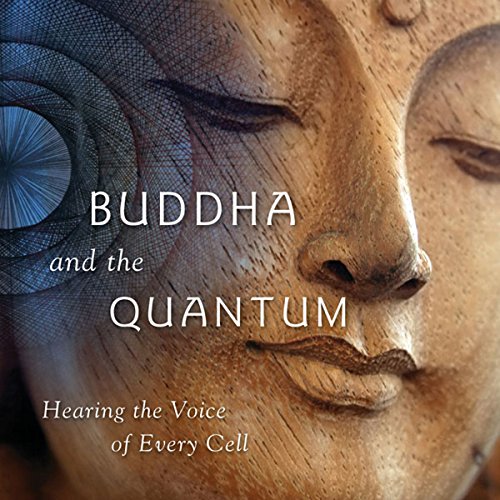
The Buddha and the Quantum
Hearing the Voice of Every Cell
No se pudo agregar al carrito
Add to Cart failed.
Error al Agregar a Lista de Deseos.
Error al eliminar de la lista de deseos.
Error al añadir a tu biblioteca
Error al seguir el podcast
Error al dejar de seguir el podcast
 Exclusivo para miembros Prime: ¿Nuevo en Audible? Obtén 2 audiolibros gratis con tu prueba.
Exclusivo para miembros Prime: ¿Nuevo en Audible? Obtén 2 audiolibros gratis con tu prueba.Compra ahora por $23.36
-
Narrado por:
-
Samuel Avery
-
De:
-
Samuel Avery
Are you seeking a deeper understanding of consciousness? Are you interested in meditation or currently practicing meditation? The Buddha and the Quantum is about the connection between meditation and physics.
Many books show parallels between consciousness and physics; a few of these attempt to explain consciousness in terms of the physics of everyday experience. This is the only book that explains physics and the everyday world in terms of consciousness alone.
It is also unique in that it demonstrates why we think there is a world independent of consciousness, explained in the same structure that explains quantum mechanics and relativity theory.
Buddha and the Quantum describes how experience in the physical world is built not from objective reality, but from experience within. Avery's brilliant model of consciousness makes difficult and subtle ideas understandable, with very surprising implications.
©2010 Samuel Avery (P)2011 Wetware MediaLos oyentes también disfrutaron:




















I would have liked to have a more detailed explanation of two things: Why he believes acceleration can be treated as a second time dimension (orthodoxy sees acceleration as a rotation of velocity between the time and space dimensions), and why he believes mass can be treated as a dimension.
Personally, I don't see why Avery's perspective wasn't extensively explored by physicists immediately upon discovering that events don't happen until we observe them, in 1925. Reality doesn't exist outside our present awareness? We have a perfectly familiar model for that: If you dream of a rock, does the rock exist when you turn your back on it? But as Copernicus showed, just because an idea is simple doesn't mean it's obvious, nor welcome.
Connects quantum theory to subjective experience
Se ha producido un error. Vuelve a intentarlo dentro de unos minutos.
Lots of concepts though the story did not flow or tie everything together. Went from meditation right into physics with no transition.
Too technical
Se ha producido un error. Vuelve a intentarlo dentro de unos minutos.
If you could sum up The Buddha and the Quantum in three words, what would they be?
An enlightening and engaging perspective on consciousness and physics.Any additional comments?
Few books deal well with physics and consciousness. The more spiritually oriented books tend to get the science wrong. The more scientifically oriented books can be hard for a non-scientist to follow. This book didn't have those issues. Very well done and I learned quite a bit.Enlightening and engaging
Se ha producido un error. Vuelve a intentarlo dentro de unos minutos.
Great unravelling of what underlies apparent duality leading to knowing who you really are---Consciousness.
Se ha producido un error. Vuelve a intentarlo dentro de unos minutos.
Due to the nature of quantum physics and the explanations required for the author to get his point across, I would recommend active (mindful) listening to this audiobook. While the information presented is done so as simplistically as possible, trying to listen to this title while doing other things will only result in confusion and missed explanations. It requires your whole attention. In that manner, you have to operate like a Buddhist to get the information within. Nice touch. While listening mindfully, I did find the author's explanations to be confusing, but I can see where some might just as easily need to rewind some things and hear them a second time to ensure you really did hear something the way you thought you did. It's just the nature of the beast in this case.
All in all, I found this book interesting in the extreme, and I recommend it to the curious who like to ponder the higher questions of the cosmos. The author narrates the audio himself, and his manner comes across cool and conversational, as though speaking to a peer.
Science and Religion, Brought Together
Se ha producido un error. Vuelve a intentarlo dentro de unos minutos.


